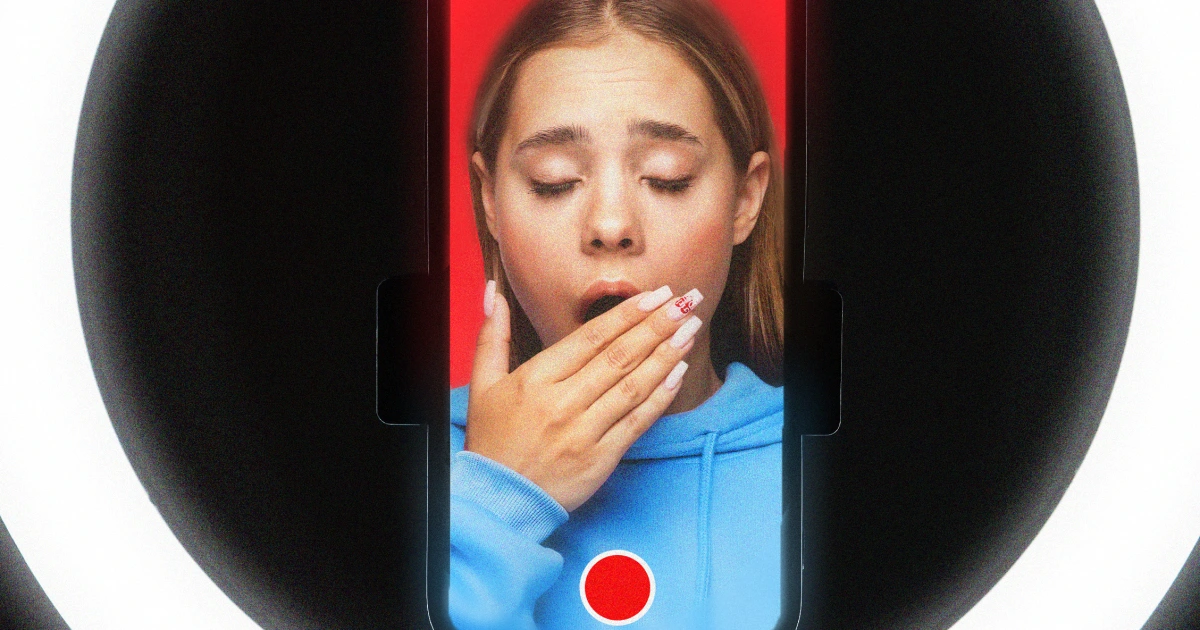Copyright NBC News

Young people are teaching themselves how to do nothing. On TikTok, users are challenging themselves to sit idle — no devices, no books, no music, not even food or sleep — and simply stay free of distractions for a set period of time. The videos, some of which have accrued millions of views, feature a time lapse of a person sitting expressionless in their room while a giant timer faces the camera, counting down a set period ranging from minutes to hours. The trend, dubbed “rawdogging boredom,” appears to be the latest attempt by some Gen Zers to heal attention spans long splintered by the mindless short-form entertainment available online at every turn. Mia Ristaino, 21, posted herself partaking in the challenge for seven days, starting off with five minutes before gradually upping her time to 15 minutes. Ristaino, a college student in Fort Worth, Texas, said she was surprised at how difficult it was to sit without distractions for even a few minutes. “I feel like I always have something to do or something on the TV in the background. Or a lot of times, I honestly will listen to my textbooks or record myself with my notes, and I’ll play that while I’m cooking or cleaning. And so whenever things are quiet, it’s very weird for me,” Ristaino said. “I want to work on my attention span. I want to work on just being present in the moment.” The NSFW origins of the term “rawdogging,” traditionally a vulgar slang word for unprotected sex, has become an internet colloquialism for taking on a task without any preparation, assistance or distractions. The term’s semantic evolution went mainstream last year, when the idea of “rawdogging” long flights gained viral traction online. In this first iteration of what would become a running meme, many on TikTok posted about spending entire flights staring straight ahead, accompanied by nothing but their thoughts. Since then, other things people have claimed to “rawdog” include their office jobs, the gym and even their mental health issues. Psychologist Gloria Mark, author of the book “Attention Span” and the Substack publication “The Future of Attention,” said the trend is part of a perpetual cycle of internet users trying to free themselves from their addicting devices. The ritual is similar to mindfulness or meditation, she said, although it seems to lack the intentional focus that typically accompanies those practices. But participants aren’t doing themselves any favors by framing it in a way that implies they’re only enduring boredom, she said. “Boredom sounds to most people like it’s unbearable. When people are in solitary confinement, the punishment is actually the boredom,” Mark said. “I would instead frame this in a positive way and say that when you sit without your device, whether you’re looking at a wall or sitting in a room, it gives you an opportunity to learn something about yourself. You can come up with ideas. You can make discoveries.” If participants can look forward to an intrinsic reward — such as a greater sense of peace, an opportunity to clear their mind, or time to work through a problem they’ve been thinking about — they might feel more inclined to partake without dreading the tedium of watching the clock tick down. But, she said, many might also be driven by a powerful extrinsic reward: social media recognition. There’s some irony, she noted, in watching people record their digital detox and share it online. For Ristaino, who said she recognizes why posting it might seem counterintuitive, the social media challenge was a means of holding herself accountable to completing a seven-day streak and, perhaps, continuing beyond that. And it seems to have worked, as the 15-minute sessions have now become a near-daily part of her routine. They’re also something of a productivity hack, she said, because leaning into the boredom leaves her more excited to then complete a homework assignment or perform other less stimulating chores. Meanwhile, sitting alone with her thoughts is no longer as intimidating as it used to be. “I’m not scooting around like crazy on my floor anymore, and I’m able to sit there and just tolerate it more,” she said. “I’m like, ‘OK, I’m bored, and that’s OK,’ instead of being like, ‘OK, I’m bored, what am I gonna do?’”



